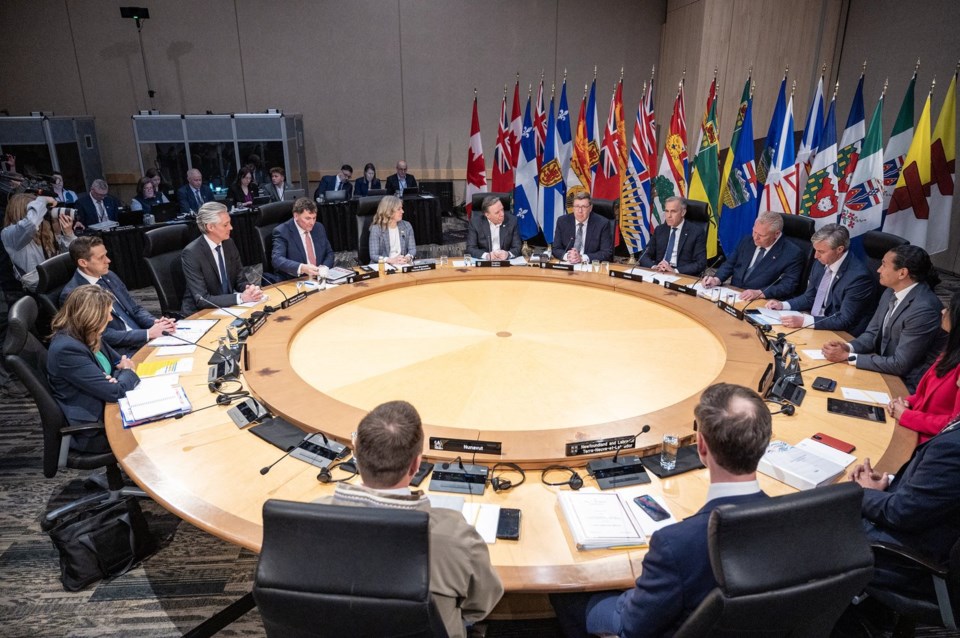OTTAWA — As Canada's premiers gather in Ontario's cottage country to talk tariffs and trade, health-care advocacy groups are trying to streamline their own messages to ensure the country's fragile health system remains on the agenda.
"The government has focused on the economy of the country, and what we're trying to stress is that the most valuable asset to a government is really having a healthy community. So, healthy community leads to healthy economy," said Dr. Margot Burnell, president of the Canadian Medical Association.
The post-pandemic crisis in health care took centre stage at the Council of the Federation in recent years as premiers pushed Ottawa for more funding.
This year, however, advocates worry that health system staff shortages and long wait times will take a back seat as the premiers focus on the economy.
Burnell said the health sector employs some three million people and contributes billions of dollars to the economy. Health spending also makes up a massive portion of provincial and territorial budgets.
The Canadian Medical Association and the Canadian Nurses Association are working to convince premiers to harmonize their licensing systems to break down interprovincial barriers to labour mobility.
The government's One Canadian Economy Act included clauses to ensure provincial and territorial licences and certifications are recognized at the federal level, and to make it easier for workers to get a federal licence.
It did not make any such changes to health-care licensing, which is a provincial responsibility.
The CMA has long called for a pan-Canadian licence for physicians, which it argues would allow more doctors to work in rural and remote parts of the country without having to go through the lengthy and expensive application process in other provinces.
Many doctors struggle to find replacements when they take time off for vacation or parental leave, the association said.
The Atlantic provinces have joined together to create a registry system that allows physicians from anywhere in the region to have their licences recognized in all four provinces.
Burnell said the CMA feels it's getting great traction on the issue.
"We've chatted with several ministers about this, both federally and provincially. So I think we can convene a table to try to move this forward," she said.
The national association representing nurses is lobbying for similar changes.
"Fragmented nursing licensure and regulation limit the mobility of our health workforce and delay care," said Canadian Nurses Association president Kimberly LeBlanc in a media statement.
"A co-ordinated approach would not only improve access to health services, it would also support a more agile, competitive economy."
Steven Staples, the Canadian Health Coalition's national director of policy and advocacy, said there's a greater sense of co-operation among the premiers and the federal government than he's seen in recent years.
"Canadians like to see our politicians co-operating on issues of national concern, and that extends to health care. So we're looking to see this spirit of collaboration," he said.
Staples said his group wants to emphasize the need for a strong public health-care system in times of economic turmoil.
The Canadian Health Coalition is also trying to understand the slow pace of uptake in the federal pharmacare program, the first phase of which is underway now.
Only B.C., Manitoba, P.E.I. and Yukon have signed agreements with Ottawa to fund the cost of free contraceptives and diabetes medications. While Staples said the spring federal election was likely a factor, he pointed out that the negotiations were underway before that.
New Brunswick Premier Susan Holt campaigned on a promise to cover the cost of contraceptives but has not yet signed a deal with the federal government.
"So why is New Brunswick leaving roughly $136 million on the table? We don't know why and we want to find out," Staples said.
This report by The Canadian Press was first published July 21, 2025.
Sarah Ritchie, The Canadian Press



